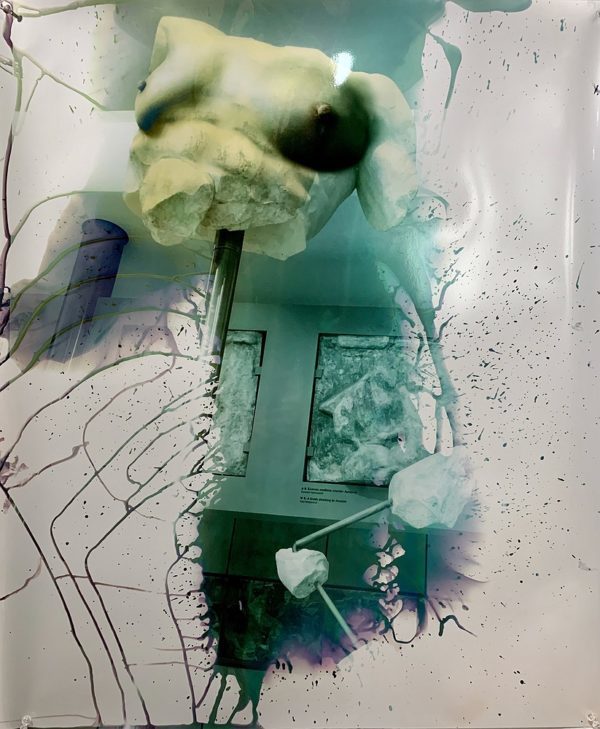Farrah Karapetian’s current show, “The Photograph is Always Now,” is a touching rumination on the loss of her father, who died of cancer last year. Furthering her ongoing exploration of photography’s potential for semi-fictionally recasting bygones into the present, this body of work is perhaps her most personal yet. It is less about her father—who remains largely unidentified—than about the artist remembering watching him slip away. In pictures throughout the show, puddled and smeared photographic fluids evoke muddled grief, hospital tinctures and bodily excretions while serving as metaphors for the man and his memory dissolving. Two series of sequential photos, The Gesture of Memory (2019) and Via Dolorosa (2019), originated in his hospital room, where she exposed photographic paper and later selectively developed it. Watery drips and disjunctive blotches offer glimpses of her father lying abed, being tended, expiring; and finally, family members comforting each other in the aftermath. Larger images are more speculative, such as Big Dream (2020), relating to a vision she had; anecdotal back-stories are catalogued on the gallery’s website. The installation’s layout and dim lighting emanating from a special chandelier titled Organ (2020) were intended to evoke a cathedral. Additional 3D components as in her last show, “Collective Memory,” would have more fully immersed viewers in this imagined space; but the complexity of bereavement is palpable. In a trio of photos including Fragment (2020, pictured above) inside a room representing a reliquary, Karapetian presents herself as a ravaged, sundered statue: When a loved one dies, he brings part of you with him.
Diane Rosenstein Gallery
831 N. Highland Ave.
Los Angeles, CA 90038
Show runs through Mar. 28

